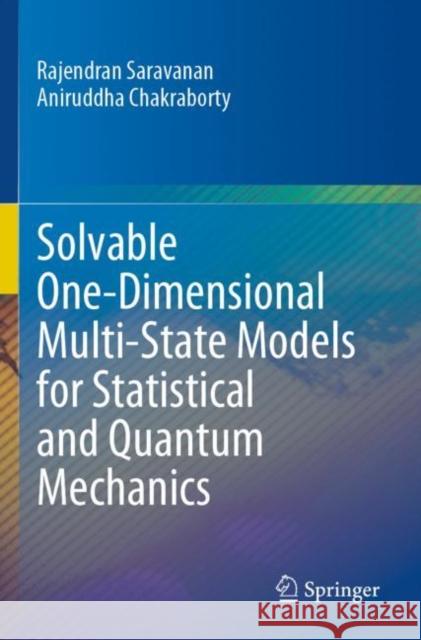Solvable One-Dimensional Multi-State Models for Statistical and Quantum Mechanics » książka
Solvable One-Dimensional Multi-State Models for Statistical and Quantum Mechanics
ISBN-13: 9789811666568 / Angielski / Miękka / 2022 / 174 str.
Solvable One-Dimensional Multi-State Models for Statistical and Quantum Mechanics
ISBN-13: 9789811666568 / Angielski / Miękka / 2022 / 174 str.
(netto: 498,38 VAT: 5%)
Najniższa cena z 30 dni: 501,19
ok. 16-18 dni roboczych.
Darmowa dostawa!
This book highlights the need for studying multi-state models analytically for understanding the physics of molecular processes. An intuitive picture about recently solved models of statistical and quantum mechanics is drawn along with presenting the methods developed to solve them. The models are relevant in the context of molecular processes taking place in gaseous phases and condensed phases, emphasized in the introduction. Chapter 1 derives the arisal of multi-state models for molecular processes from the full Hamiltonian description. The model equations are introduced and the literature review presented in short. In Chapter 2, the time-domain methods to solve Smoluchowski-based reaction-diffusion systems with single-state and two-state descriptions are discussed. Their corresponding analytical results derive new equilibrium concepts in reversible reactions and studies the effect of system and molecular parameters in condensed-phase chemical dynamics. In Chapter 3, time-domain methods to solve quantum scattering problems are developed. Along side introducing a brand new solvable model in quantum scattering, it discusses transient features of quantum two-state models. In interest with electronic transitions, a new solvable two-state model with localized non-adiabatic coupling is also presented. The book concludes by proposing the future scope of the model, thereby inviting new research in this fundamentally important and rich applicable field.
This book highlights the need for studying multi-state models analytically for understanding the physics of molecular processes. An intuitive picture about recently solved models of statistical and quantum mechanics is drawn along with presenting the methods developed to solve them. The models are relevant in the context of molecular processes taking place in gaseous phases and condensed phases, emphasized in the introduction. Chapter 1 derives the arisal of multi-state models for molecular processes from the full Hamiltonian description. The model equations are introduced and the literature review presented in short. In Chapter 2, the time-domain methods to solve Smoluchowski-based reaction-diffusion systems with single-state and two-state descriptions are discussed. Their corresponding analytical results derive new equilibrium concepts in reversible reactions and studies the effect of system and molecular parameters in condensed-phase chemical dynamics. In Chapter 3, time-domain methods to solve quantum scattering problems are developed. Along side introducing a brand new solvable model in quantum scattering, it discusses transient features of quantum two-state models. In interest with electronic transitions, a new solvable two-state model with localized non-adiabatic coupling is also presented. The book concludes by proposing the future scope of the model, thereby inviting new research in this fundamentally important and rich applicable field.











